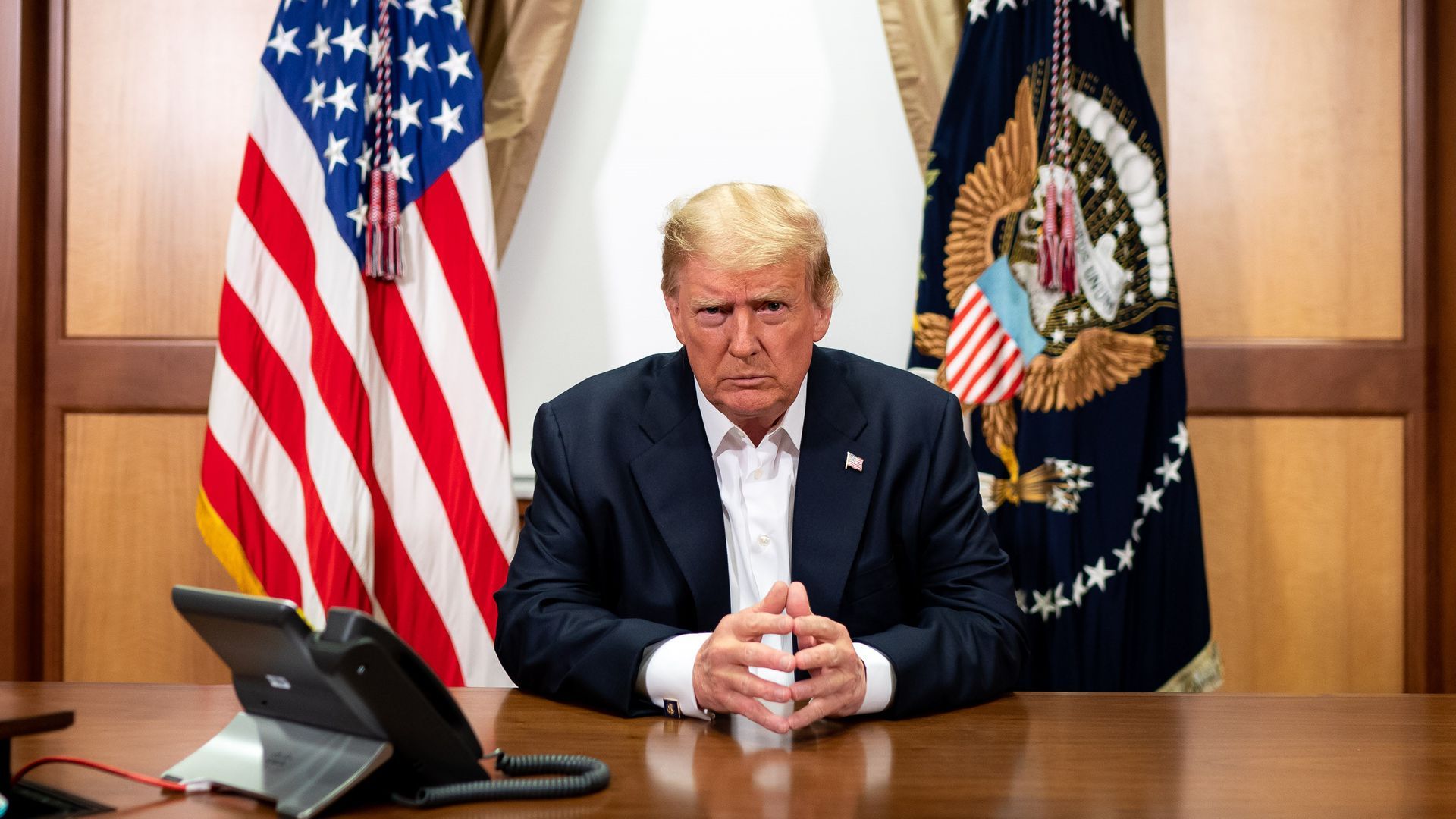Why Trump dumped stimulus negotiations
Add Axios as your preferred source to
see more of our stories on Google.

President Trump. Photo: Tia Dufour/The White House via Getty Images
Markets were stunned by President Trump's announcement on Twitter that the White House was pulling out of stimulus discussions with House Democrats on Tuesday — and several Trump advisers even told Axios' Jonathan Swan they were perplexed by the "inept" decision, calling it a "gift" for House Speaker Nancy Pelosi. But it makes sense if you follow the logic of Trump's economic advisers.
Where it stands: Trump has surrounded himself with die-hard acolytes of supply-side economics, like one-time pick for the Federal Reserve Stephen Moore, who argue that fiscal stimulus measures and increased benefits for unemployed Americans not only don't help, but hurt the economy.
- "We're very worried about Trump doing a deal with Pelosi that would have very negative effects on the economy," Moore told Axios' Alayna Treene in July.
- Moore predicted that if unemployment benefits from the CARES Act are extended, "You're not gonna have a jobs recovery in the fall. Not only is that bad for millions of Americans, but Trump can't win an election if we don't have a good economy."
Those advisers have been lobbying Treasury Secretary Steven Mnuchin, who's leading negotiations for the White House, to focus exclusively on tax cuts and more deregulation to counter the downturn.
The intrigue: Trump's economic adviser Larry Kudlow is also a dyed-in-the-wool supply-sider and has been calling for payroll tax cuts while playing down the value of relief spending for months.
- Other prominent conservatives have consistently hit the talking point that the recovery from the global financial crisis was the weakest since the Great Depression because of stimulus measures.
- Such thinking ignores the low growth environment globally and the fact that President Obama and a Republican Congress followed the stimulus with fiscal austerity measures.
One level deeper: Americans have been growing concerned about the spiraling U.S. budget deficit and the national debt, which has surpassed U.S. GDP, while the U.S. debt-to-GDP ratio is on course to overtake even World War II levels.
- The orthodoxy of fiscal conservatism and fear about the debt emboldened Republican senators to insist on a hard price cap for a second relief bill.
- And better-than-expected readings on jobs and stocks also kept pressure off to make a deal.
But Investors think stimulus is still coming


While the stock market turned decisively negative after Trump's tweet, Treasuries and currencies were little moved.
- Many investors focused on the end of Trump's tweet — that a stimulus bill would be passed after the election — and expect that more spending will be delivered at worst in early 2021 no matter who wins November's election.
- "What we don’t know is how much gamesmanship is taking place behind the scenes that we’re not privy to," Tom Stringfellow, president and CIO of Frost Investment Advisors, tells Axios.
- "Is this a negotiation ploy? That’s not an outlandish statement in politics for either party, playing a little bit of poker."
Stay woke: Trump tweeted later on Tuesday that he wanted Congress to approve $25 billion in aid for airlines and $135 billion for the Paycheck Protection Program, plus a standalone bill providing $1,200 direct payment checks for Americans.
Editor's note: Article corrects Tom Stringfellow's title to CIO, or chief investment officer, from CEO.
